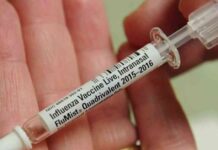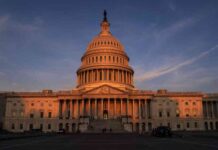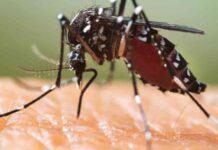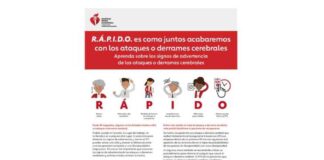The Centers for Disease Control and Prevention (CDC) is taking proactive measures to address the recent global health emergency declared by the World Health Organization regarding the outbreak of monkeypox, now referred to as mpox. Amid concerns of potential school closures due to the virus, the CDC is assuring the public that keeping schools open is a priority.
Social media platforms have been abuzz with fears reminiscent of the Covid-19 lockdowns in 2020, with many students expressing their apprehension about missing out on key milestones like senior year. Dr. Michelle Taylor, director and health officer of the Shelby County Health Department in Memphis, Tennessee, acknowledges the trauma that students have endured and emphasizes their reluctance to go through another round of lockdowns.
However, federal health officials are quick to highlight the stark differences between mpox and Covid-19. Christina Hutson, head of the poxvirus and rabies branch at the CDC, points out that mpox is primarily spread through close, skin-to-skin contact with the lesions on infected individuals. This mode of transmission contrasts with the asymptomatic spread of Covid-19, making mpox less likely to lead to widespread closures of schools and other public spaces.
### Understanding the Spread of Mpox
Mpox, characterized by symptoms such as fevers, headaches, muscle aches, and skin lesions, is a virus that primarily spreads through direct contact with infected individuals. Unlike Covid-19, which can be transmitted through respiratory droplets in the air, mpox requires physical interaction for transmission to occur. Dr. Paul Offit, an infectious disease expert, emphasizes the lack of asymptomatic spread with mpox, providing reassurance that the virus is less likely to propagate unknowingly.
The concern surrounding mpox is further exacerbated by the emergence of different clades, or versions, of the virus. Clade II, which circulated globally in 2022, predominantly affected men who have sex with men but has since decreased in prevalence. The current focus is on clade I, the more severe and lethal strain responsible for the outbreak in parts of Africa.
### Global Impact and Response to Mpox
While clade I cases have been predominantly confined to African countries like the Democratic Republic of Congo (DRC), health officials are vigilant about its potential spread beyond the continent. With only one confirmed case outside of Africa in Sweden, the global response to mpox remains focused on containment and prevention measures.
CDC modeling studies have indicated a low likelihood of widespread transmission of clade I mpox within households in the United States. The living conditions in the DRC, characterized by close quarters and multiple occupants, present challenges for isolating infected individuals, unlike the more spacious and isolated living arrangements in many American households.
### Reassurance Amid Uncertainty
Despite the concerns surrounding the severity of clade I mpox and its potential for global spread, experts are confident in their ability to manage the situation without resorting to drastic measures like school closures. Dr. Carlos del Rio, an infectious disease expert at Emory University, emphasizes the differences in approach between mpox and Covid-19, citing the wealth of knowledge and research available for addressing the former.
With decades of research on mpox and its distinct mode of transmission, health officials are equipped to respond effectively to the current outbreak. Dr. Taylor underscores the importance of evidence-based decision-making, stating that there is no indication of the virus mutating or spreading in a manner that would necessitate school closures.
In conclusion, the CDC’s plan to keep schools open during the mpox outbreak reflects a strategic and informed approach to public health crises. By leveraging scientific knowledge and proactive measures, health officials aim to mitigate the spread of mpox while minimizing disruptions to daily life. As the situation continues to evolve, ongoing vigilance and adherence to preventive measures will be crucial in safeguarding communities against the impact of emerging infectious diseases.

















